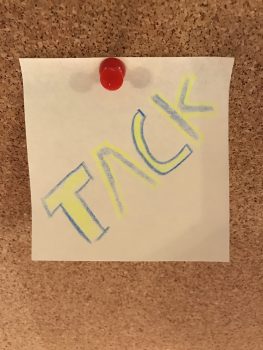Saying Thank You in Swedish Posted by Marcus Cederström on Jan 25, 2017 in Vocabulary
As you learn a new language, it’s handy to have a few words in your vocabulary pretty early on. Learning a couple of variations on “thank you” is a good start. There are a lot of different ways to say “thank you” in Swedish so let’s take a look at a few examples.
The first is the easy one, the simple one, the common one: tack. It means “thanks” or “thank you.” Make sure you get that “c” in there otherwise you spell the Swedish word for roof. And that’s not quite as helpful. Use this word liberally.
Next is tack så mycket. It means, literally, “thanks so much.” But basically, “thank you very much.” It’s a little more thankful and a little more intense.
Relatedly, there’s tusen tack, “a thousand thanks” and stort tack, “big thanks.” Both are used to express a solid chunk of gratitude. Your friend just helped you move into a third story apartment on a hot and humid day in August? That friend deserves a stort tack. And some pizza.
Then you’ve got a way to say “thank you” that really emphasizes the person you’re thanking. Tack ska du ha, for example, translates literally as “thanks shall you have,” which is not a great translation, but makes it clear what you’re doing. This is another phrase that is a little more grateful than just tack, you’re saying thank you very much, emphasizing that you. When you call the bank because you messed up and paid your credit card bill two days late, and the person you speak with waives your fees and says no worries, they deserve a tack ska du ha. You’re grateful and you’re especially grateful to that particular person.
You can also say tackar. When you say (or hear this), you’ll often hear it alone. Just tackar. But you may occasionally hear jag tackar or man tackar, “I thank you” or “one thanks you.” It can sound pretty formal if you don’t drop the pronoun, but it’s another great way of thanking someone and you’ll see it used pretty regularly.
Finally, just repeat yourself! Tack tack is a perfectly acceptable way of saying “thank you.” Plus, it kind of rolls off the tongue, tack tack. Tack tack. Tack tack.
Know a few other ways? Let us know in the comments!

Build vocabulary, practice pronunciation, and more with Transparent Language Online. Available anytime, anywhere, on any device.





Comments:
Tori:
When I lived in Sweden in the 80s I never heard “tackar.” I don’t think I heard it in the mid-90s, but I definitely did in 2008. But on my last visit in 2016, it had virtually vanished again. I asked a friend about this, a lifelong Swede, and he tentatively agreed that “tackar” was a late arrival (my guess is to match the plural “thanks), and that he had not grown up with it in the 70s. Tankar, tackar?
Marcus Cederström:
@Tori Oooh… good question! I stil hear it a decent amount, but these things do come and go and can also be regionally specific.
Karen:
I just printed out the lesson on saying thank you in Swedish. Thought it was a great lesson and I want to share it with my Vasa group. Unfortunately when I printed it out, it was 3 pages long. All of that information could have been contained on one sheet of paper.
Marcus Cederström:
@Karen Hi Karen, glad it was useful. We recommend just highlighting the txt you want to print and then printing the selection. Unfortunately, the website isn’t optimized for printing. By only printing the selected text, it should pop out on just one page!
Brad:
I’m an anglophone whos is bad (that’s being nice!) at Swedish but I don’t quite understand the response to my ‘tack’.
When I buy something (coffee, etc) I pretty much always follow my receipt of the item with ‘tack’ and it is usually repsonded to with a ‘tack tack’. Why is this?
Regards,
Brad
Marcus Cederström:
@Brad A lot of times the tack tack can be a sort of you’re welcome. A thanking you for your thanks.
rusti:
Tack så hjärtligt för artikeln!
I always thought, “Tack ska du ha” sounded weird. Makes it seem like I’ll be receiving the thanks at some undetermined time in the future. I want it now!
Marcus Cederström:
@rusti We should all be striving for a tack ska du ha
Carolyn:
I recently lost my home to a landslide. I’ve been using “tusen tack” (with immediate translation) in notes to those who have helped us. I figure it’s a little different from all the other thanks we’ve been saying!